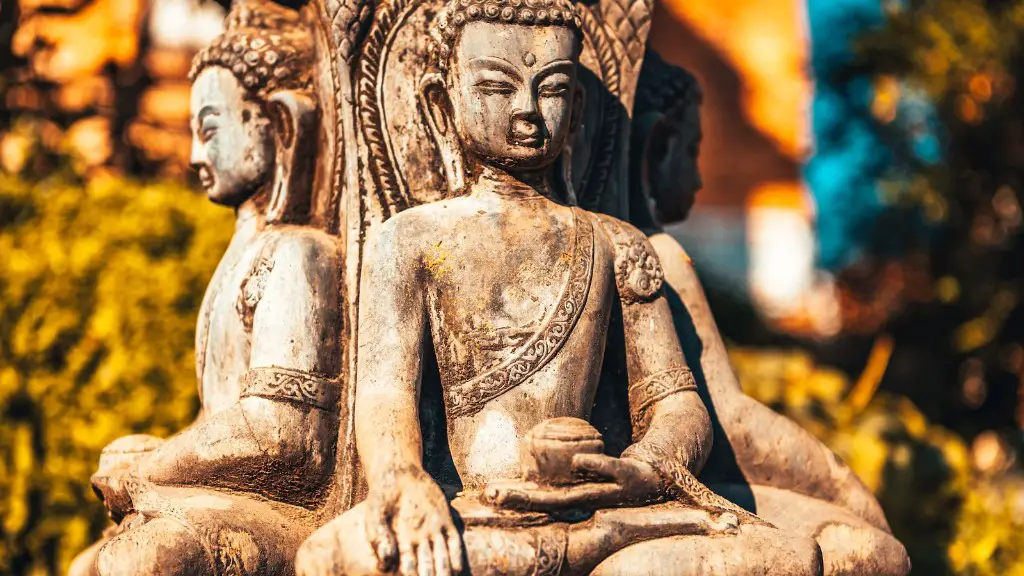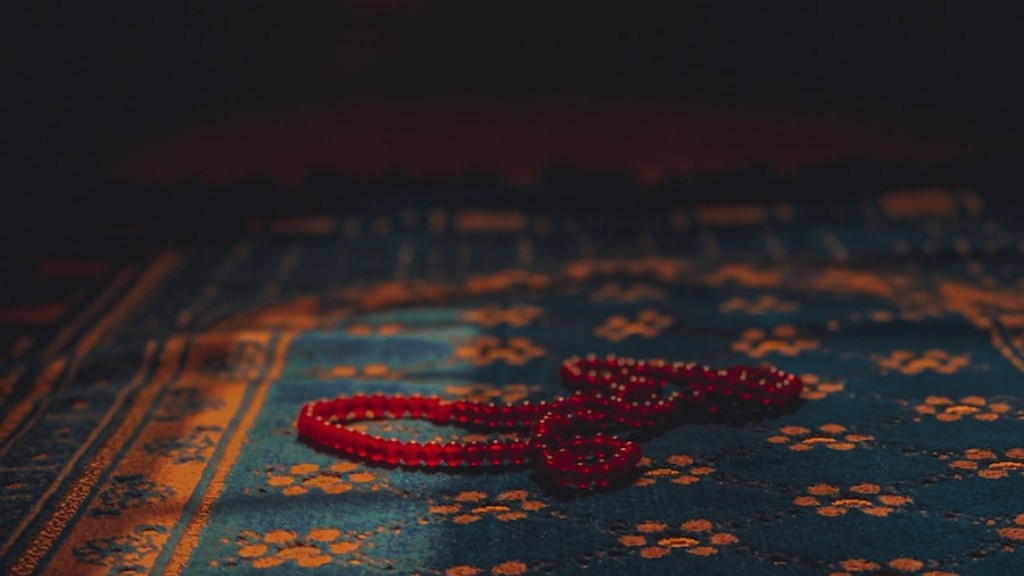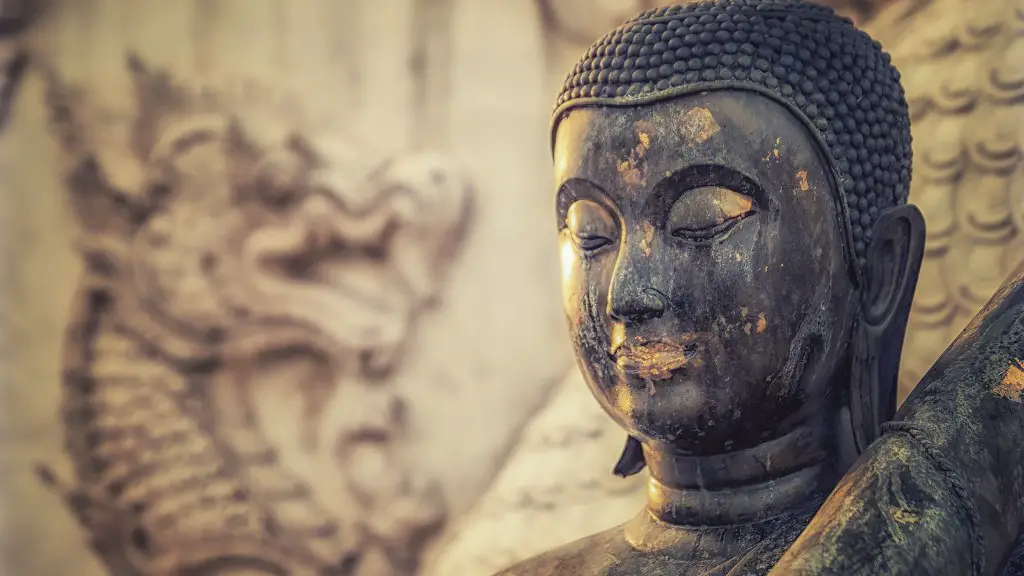History of Hinduism
Hinduism is one of the oldest religions in the world with some estimates suggesting it to be over 5,000 years old. It originated in the Indian subcontinent and is the third largest religion in the world with some 1 billion adherents. Hinduism is polytheistic, recognizing multiple deities, who are believed to exist in all forms of creation.
Hinduism is distinct from other religions such as Christianity and Islam, as it does not have a codified set of beliefs or a centralized institution of worship. It recognizes the diversity of human experience and acknowledges the presence of multiple gods and goddesses in its belief system. This polytheism is reflected in the numerous temples and shrines which are dedicated to the worship of each deity.
Hinduism is divided into four major philosophy: Vedanta, Yoga, Samkhya, and Nyaya. The Vedas, or “knowledge”, are the primary scriptures of Hinduism and contain the teachings of the various gods and goddesses. Additionally, Hinduism also draws upon other sacred texts, epic stories, and mythology such as the Mahavhuna and Ramayana.
Major Gods and Goddesses in Hinduism
The gods and goddesses in Hinduism represent different aspects of the divine power and are worshipped by millions of Hindus worldwide. The primary deities are Vishnu, Shiva, Brahma, and Saraswati, who are revered by Hindus for their power and wisdom. Vishnu is believed to be the preserver of the universe, Shiva is the destroyer of evil and Brahma is the creator. Saraswati is the goddess of knowledge, arts and sciences.
In addition to these four primary gods, there are dozens of other gods and goddesses in Hinduism. Each one is associated with a specific aspect of life such as good luck, wealth, health, fertility, and love. For example Ganesh is the god of luck and success, Laxmi is the goddess of wealth and prosperity, and Hanuman is considered to be the god of courage and strength.
The gods and goddesses in Hinduism are often represented in various forms such as sculptures, paintings, and masks. A common practice is to place an image of a deity at home or in the workplace to bring good fortune, health, and prosperity. Hindus also perform numerous religious rituals such as puja to honor and worship their deities of choice.
Significance of the Gods and Goddesses in Hinduism
The gods and goddesses in Hinduism are important to the life of every Hindu since they represent different aspects of nature. Hindus believe that by worshipping them, they will be blessed with good health, fortune and success. They believe that the gods and goddesses are the source of strength and hope in life and will protect them in times of danger and distress.
Hindus also believe that the gods and goddesses are the divine power behind the universe and are the source of all knowledge and wisdom. Hindus often seek guidance and blessings from their favorite gods and goddesses for strength and courage in their daily lives. Additionally, Hindus seek solace in the gods and goddesses during times of transition such as death, childbirth and marriage.
Conclusion and Summary
Hinduism consists of numerous gods and goddesses who each embody a different aspect of the divine power. They have significant importance in the life of every Hindu as they represent strength, hope and knowledge. Hindus often seek the blessings of their favorite deities in order to receive guidance, support and courage in their daily lives.
Ceremonies and Festivals
Hinduism is renowned for its colorful ceremonies and festivals that are held in honor of the gods and goddesses. Hindus celebrate numerous festivals throughout the year where they typically gather in temples to perform rituals and ceremonies. These festivals also provide an opportunity for Hindus to come together to celebrate their religion and to show their devotion to their favorite deities.
The most important festivals include Diwali and Navratri, where Hindus light special lamps in honor of the goddess Lakshmi. Other festivals include Holi, the festival of colors, which is dedicated to the god Kama, and Makar Sankranti, which honors Surya, the god of the sun.
Each of these festivals or “utsav” is an important part of Hindu life and helps to bring the Hindu community together as well as providing an opportunity to honor the gods and goddesses. Additionally, these festivals are opportunities for Hindus to reflect on their beliefs and to express their love for the deities.
Symbols and Artwork
The gods and goddesses of Hinduism are often represented in various forms and symbols such as sculptures, paintings, masks and clothing. These representations are used to honor and worship the deities and to bring good fortune, health and prosperity. Each god or goddess has its own specific symbol that is associated with it which helps to identify it.
Additionally, Hinduism is renowned for its artwork and intricate designs that have been created to represent the gods and goddesses. These artworks are usually painted on temple walls and are used to honor, venerate and serve as a reminder of the divine power. These artworks are considered to be an integral part of Hindu religious life and are often used as part of the ceremonies and festivals.
Ultimate Goal of Hinduism
Hinduism teaches that the ultimate goal of life is to be united with the divine and to achieve a state of enlightenment. This can be achieved by following the religion’s spiritual path known as Dharma, which involves a commitment to living a life in accordance with Truth and Righteousness. By following this path, Hindus believe that they will be able to dissolve their egos and reunite with the divine power.
Hinduism also emphasizes the importance of love, kindness, compassion and non-violence. Hindus believe that by following the code of conduct prescribed by the religion, they will be able to progress spiritually and reach the ultimate goal of life. Additionally, they believe that by worshipping the gods and goddesses they will be granted the necessary strength and courage in order to realize this goal.



